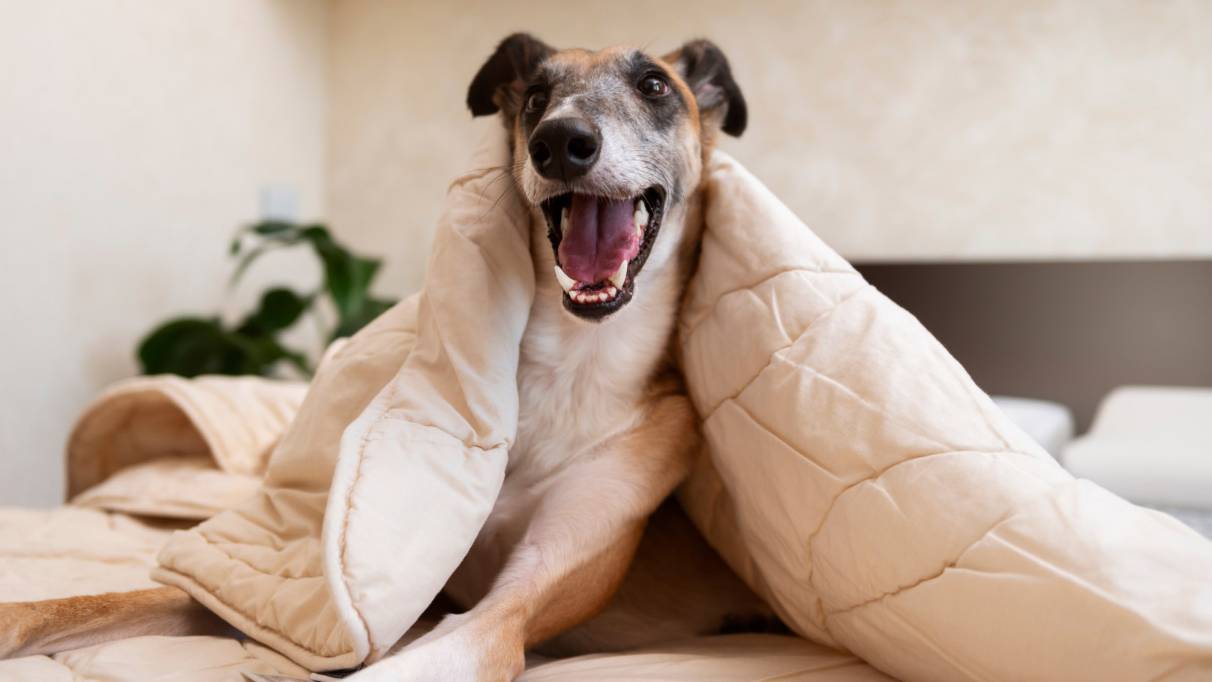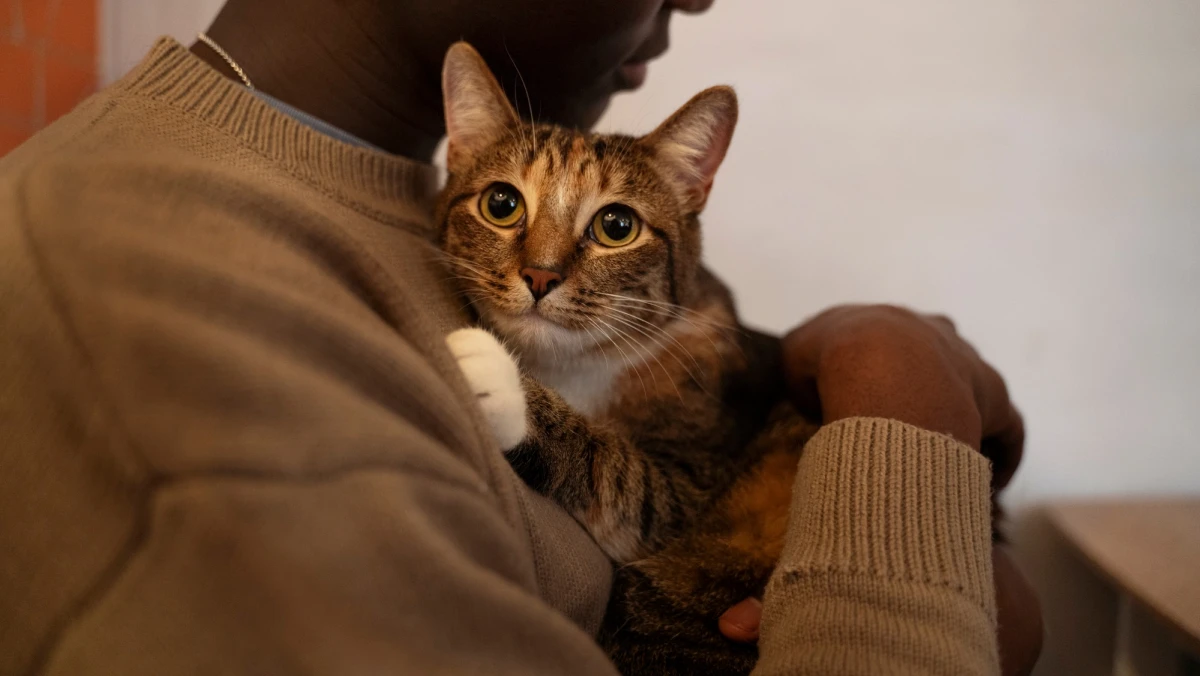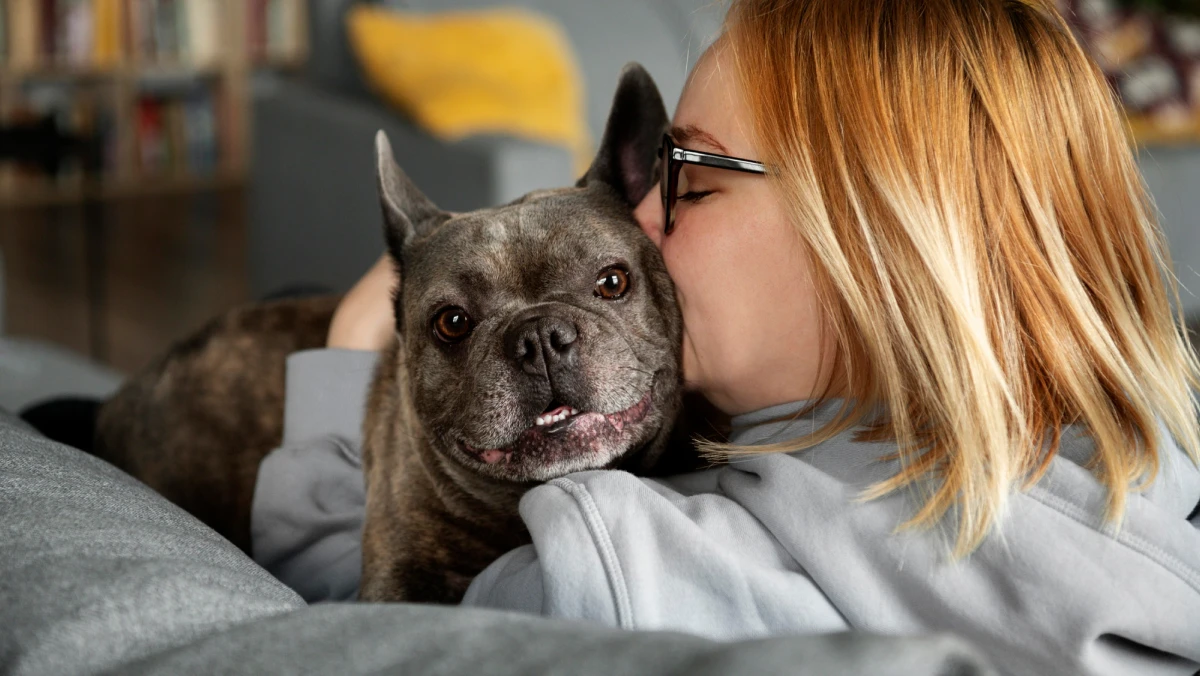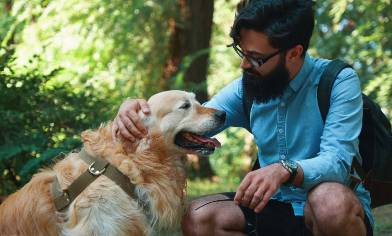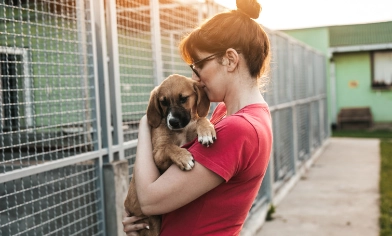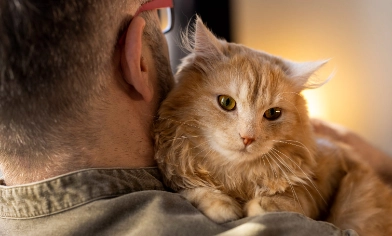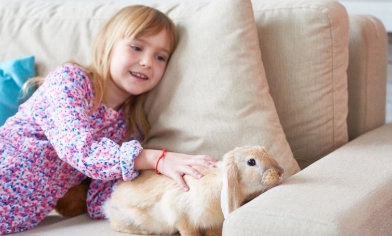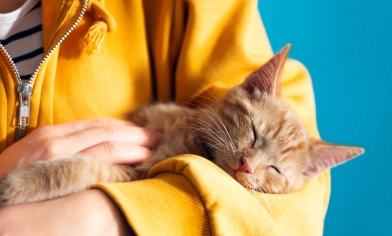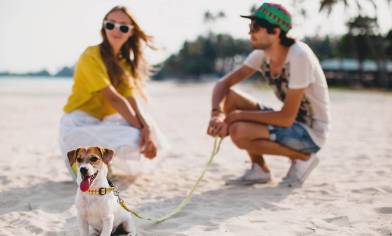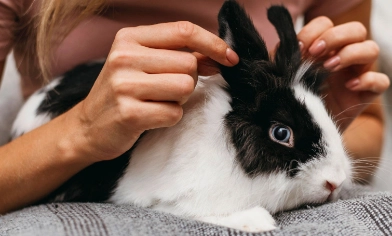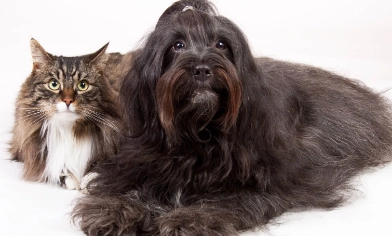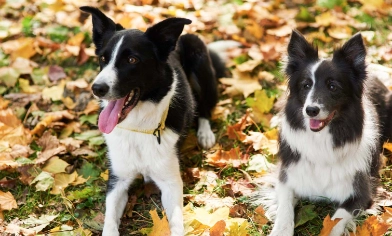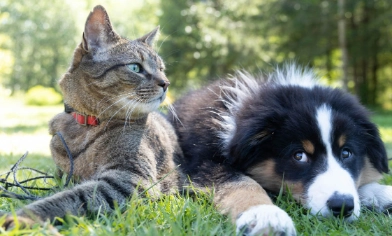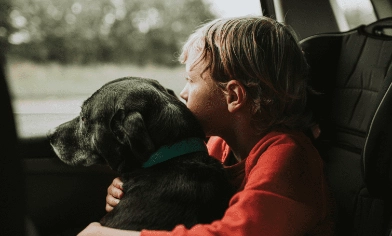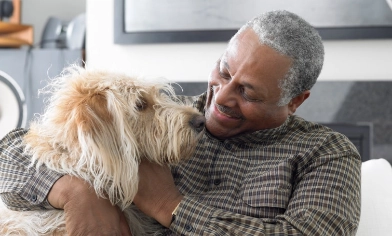Why are fireworks stressful for pets?
Some pets might not flinch at the sound or sight of fireworks in the sky. But many find the loud bangs and flashing lights frightening, which can cause severe distress and unusual behaviour. For some, it’s similar to a panic attack in humans.
The reason? Pets don’t understand that fireworks aren’t a threat, which explains why they might react with fear or stress when they see or hear them.
Common signs of stress in pets:
- Dogs might pant or drool excessively, tremble or shake, hide, whine, whimper or bark more than usual, pace, try to escape or seek extra comfort from their owners
- Cats might flatten their ears, cower or hide, freeze in place, groom excessively, refuse to eat or become more vocal
- Rabbits can show stress by thumping their hind legs, trying to escape, becoming restless or staying completely still, grinding their teeth, being aggressive or losing their appetite
In this article, we’ll cover how to keep pets safe and calm during firework events, how to soothe them if they’re already stressed and what to do if they get injured or become very anxious.
How to prepare pets for fireworks events
Fireworks can be stressful for pets, but a little preparation can go a long way in helping reduce their stress and keeping them safe.
1. Check local fireworks schedules
Knowing when fireworks will take place allows you to prepare in advance. Look up the dates and times of any planned events in your area, so you’re not caught off guard. This way, you can make arrangements to keep your pet indoors and take steps to help keep them calm and comfortable.
Common events with fireworks in the UK
- New Year’s Eve (31 December)
- Chinese New Year (late January to mid-February, date changes)
- Diwali (October or November, date changes)
- Bonfire Night (5 November, though displays often happen throughout the month)
- Christmas (throughout December, like light-switch-ons)
- Weddings and private parties
- Eid (end of Ramadan or Eid al-Adha, date changes)
Fireworks are also used at music festivals, sports events, and big celebrations like royal jubilees, coronations or big football wins.
2. Get pets used to the noise
If your pet struggles with loud noises, you can try desensitising them by playing fireworks sounds at a low volume a few weeks, or even months, in advance. Stay calm and act normally but watch for any signs of stress. If your pet seems frightened, stop and try again the next day.
Gradually increase the volume over time but only if your pet seems calm. You can even scatter some food or treats on the floor while the sounds play to help them build a positive association with the noise.
3. Keep pets inside during fireworks
Keeping pets inside during fireworks can help reduce anxiety, keep them protected from sudden loud noises and could help prevent them from getting hurt.
Before the fireworks begin, take your dog for a walk while it’s still light so they don’t need to go outside during the evening. If you have an outdoor cat, bring them inside early to keep them safe. You can also help pets adjust by feeding them earlier than usual, so they get used to settling indoors before dark.
If your rabbit normally lives outside, it’s best to bring them indoors to a quiet, sheltered space where they’ll feel safer.
4. Create a safe space
Creating a quiet, comfortable space can help pets feel more secure during fireworks. If possible, choose a room that is furthest from the noise, such as a back bedroom or a cosy corner of the house. Fill the space with your pet’s bed, blankets and favourite toys, and close the curtains or blinds to block out flashing lights.
But remember, don’t confine dogs and cats to one room, as this might make them feel more scared.
Finally, make sure all windows, doors and cat flaps are securely closed to prevent distressed pets from escaping.
5. Offer calming aids
There are lots of calming aids that can help reduce anxiety in pets during fireworks. Pheromone diffusers, sprays or calming collars can provide comfort by mimicking natural calming signals. You can also speak to your vet about natural supplements or, in severe cases, prescription medication to help ease your pet’s anxiety.
